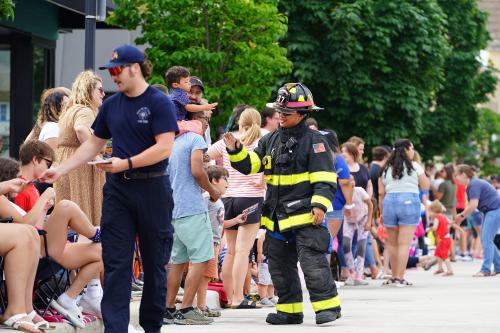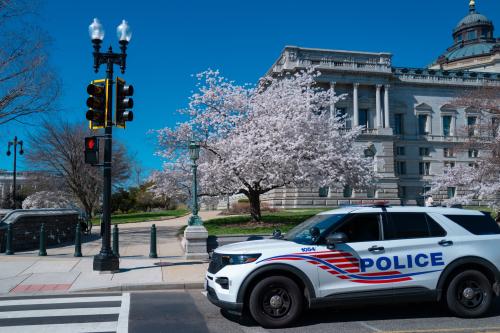

10:00 am EDT - 11:00 am EDT
Past Event
While some of America’s asset-rich neighborhoods have experienced significant revitalization in recent years, concentrated poverty and racial segregation remain persistent across thousands of urban, suburban, and rural places. These uneven patterns of economic growth and investment require a shift in how communities are governed and managed, with the goal of helping more people and places prosper. Place-based (“hyperlocal”) governance structures—organizations ranging from community land trusts to business improvement districts to neighborhood councils—are part of the solution. But they need to evolve to address the challenges of an inequitable socio-economic landscape.
On Thursday, October 6, Brookings Metro celebrated the forthcoming release of a new book from the Bass Center for Transformative Placemaking, “Hyperlocal: Place Governance in a Fragmented World” (available for pre-order). Co-editors Jennifer S. Vey and Nate Storring lead a discussion on the opportunities and tensions associated with place governance. Together with event speakers, they explored how place governance organizations can give stakeholders a structure to share ideas, voice concerns, advocate for investments, and co-design community improvement strategies. The event participants also highlighted innovative financing, organizing, and ownership models for creating and sustaining more effective and inclusive place governance ecosystems.
Viewers submitted questions by emailing [email protected] or tweeting to @BrookingsMetro using the hashtag #HyperlocalRelease.
Panelist



Thea Sebastian, Hanna Love
May 20, 2025

P. David Bramble, Tracy Hadden Loh
April 24, 2025

Hanna Love, Hannah Stephens
April 23, 2025